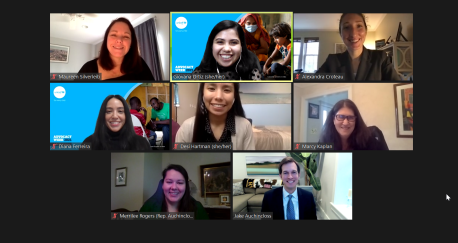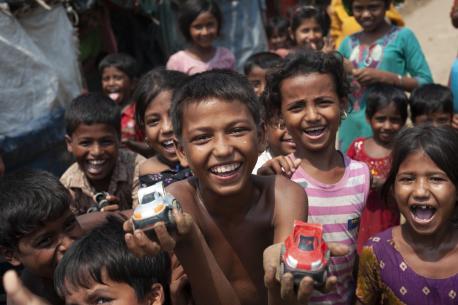Obama and Preval consider Haiti's next steps
Martin Rendon is the Vice President or Public Policy and Advocacy for the U.S. Fund for UNICEF
Yesterday I joined other Washington-based United Nations and nongovernmental organization representatives at the White House to hear President Barack Obama and President Rene Preval of Haiti speak about the cooperation between our two nations in response to the earthquake in Haiti. The two leaders also renewed their commitment to address the challenges that remain.
 |
Martin Rendon is the Vice President or Public Policy and Advocacy for the U.S. Fund for UNICEF
Yesterday I joined other Washington-based United Nations and nongovernmental organization representatives at the White House to hear President Barack Obama and President Rene Preval of Haiti speak about the cooperation between our two nations in response to the earthquake in Haiti. The two leaders also renewed their commitment to address the challenges that remain.
 |
| © MVI, Creative Commons (left), © UNICEF/NYHQ2010-0030/LeMoyne (right) |
| The White House (left) and the Presidential Palace in Haiti (right). |
Although the roses were not yet in bloom in the White House Rose Garden, the hard winter snows in Washington had given way to the early, encouraging signs of Spring. That seasonal transformation was an appropriate backdrop for the hope of recovery in Haiti from the death and devastation of the earthquake in January.
The meeting of the two presidents was a time to reflect somberly on what had occurred, to take stock of what had been accomplished and to remind everyone that the job is not over.
We who support UNICEF's work to prevent children from dying needlessly understand there remains much for us to do to help the children of Haiti.
President Obama expressed it well, saying, as President PrÃval and I discussed, the situation on the ground remains dire, and people should be under no illusions that the crisis is over. Many Haitians are still in need, desperate need in some cases, of shelter and food and medicine. And with the spring rains approaching, those needs will only grow. The challenge now is to prevent a second disaster.


